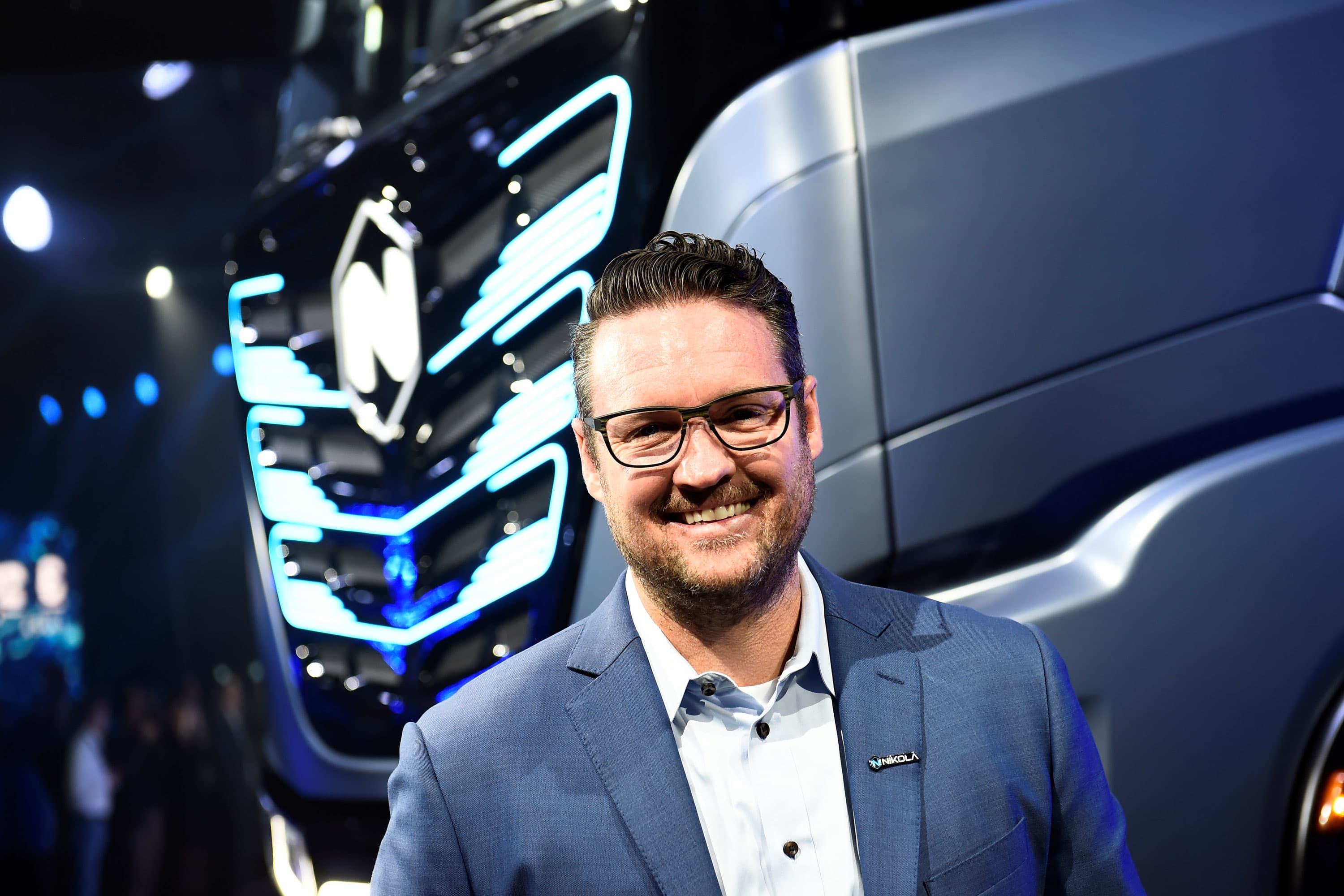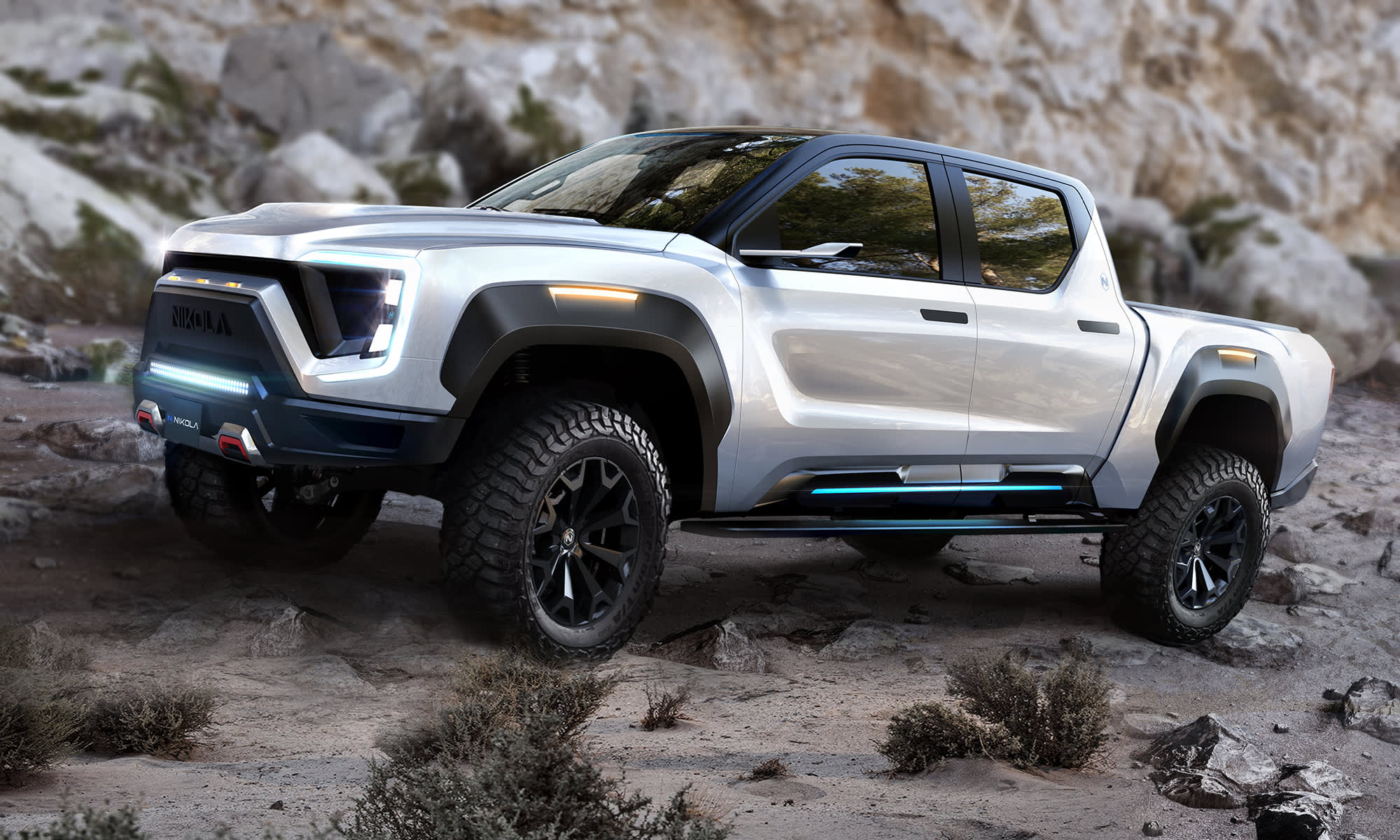
Nikola rebuts fraud claims but acknowledges that its truck wasn't driving itself
by Michael WaylandKey Points
- Shares of Nikola recovered from early losses Monday as the electric vehicle start-up disputed fraud claims made last week by short-selling firm Hindenburg Research. The stock closed Monday up 11%.
- Nikola said there were "dozens" of inaccurate allegations in the report by a short-selling firm.
- The accusations came days after General Motors said it is taking an 11% stake in Nikola.
Shares of Nikola recovered from early losses Monday as the electric vehicle start-up disputed fraud claims made last week by short-selling firm Hindenburg Research.
In a statement Monday, the company said there were "dozens" of inaccurate allegations in the report, and it outlined specific examples.
But Nikola isn't disputing one of Hindenburg's largest claims — that it staged a video showing a truck that appeared to be functional but wasn't, as well as claims that the truck was fully functional.
Nikola shares closed Monday at $35.79, up 11% following the rebuttal as well as comments from Nikola CFO Kim Brady, who reassured investors the company's plans remain on track. He also reconfirmed comments made last week that detailed billions in potential cost savings from announced partnerships, and specifically called out its plans with General Motors.
Nikola said it anticipated saving "over $4 billion in battery and powertrain costs over 10 years and over $1 billion in engineering and validation costs."
"I think it's offensive to our strategic partners that you have a short seller who's doing a hack job and essentially pointing fingers at our strategic partners that they don't know what they're doing," Brady said during an RBC Capital Markets conference. "I would suggest it's ridiculous to think they haven't done a deep dive; much more deep dive than what any third party short seller would be able to perform."
Regarding the video, Nikola said it "never stated its truck was driving under its own propulsion in the video, although the truck was designed to do just that." However, there also were no disclaimers that the truck wasn't functioning on its own.
"It was never described as 'under its own propulsion' or 'powertrain driven,' " the company said. Nikola said investors at the time knew the capabilities of the prototype vehicle, calling the 3-year-old video "irrelevant except for the fact that the short seller is trying to use it for its main thesis."
The company said it "ultimately decided not to invest additional resources" to complete the vehicle. It instead shifted resources to another pickup, known as the Nikola Two, which the company has demonstrated is self-propelled.
Hindenburg said the truck was "towed to the top of a hill on a remote stretch of road and simply filmed it rolling down the hill." It was then used in a video, which Nikola said was created by a third party, in which the truck appeared to be driving on its own propulsion on flat roads.
The video was one of several claims in the firm's report, which was called "Nikola: How to Parlay An Ocean of Lies Into a Partnership With the Largest Auto OEM in America."
The accusations came days after GM said it is taking an 11% stake in Nikola. GM said it planned to produce Nikola's battery-electric pickup truck the Badger by the end of 2022.
Hindenburg accused Nikola's founder, Trevor Milton, of making false statements about the company's technology in order to grow and partner with auto companies.
Nikola has rejected the claims, calling the report "a hit job for short sale profit driven by greed." The company said it has contacted and briefed the Securities and Exchange Commission regarding its "concerns pertaining to the Hindenburg report." It also has retained a law firm regarding potential legal action.

In other instances, Nikola said Hindenburg mischaracterized a quote from an employee of auto supplier Bosch, a partner of the company; misrepresented comments from Milton about potential advancements in the company's battery technology; and falsely linked the departure of a chief financial officer to refunding deposits for first-generation versions of the company's semitrucks.
Nikola did not address other claims outlined by Hindenburg. Those allegations included alleged misrepresentation of the capabilities of the Nikola One during the vehicle's unveiling in 2017 and claims that the company's headquarters was off the grid.
Hindenburg founder Nathan Anderson said the firm finds Nikola's statement on Monday "completely inadequate."
"Nikola had previously promised a point by point rebuttal to our report and this morning's press release did not deliver on that promise," Anderson said in an email to CNBC. "In the few areas where the company did respond, it largely confirmed our findings or simply raised new unanswered questions. We will be issuing a detailed response."
In a tweet Monday morning, Milton said the company is "focused on delivering" — something analysts such as Wedbush's Daniel Ives have been advising Nikola investors on doing.
"While we look forward to management addressing some of these issues, we continue to believe seeing the forest through the trees that Nikola is a story stock now and its all about execution looking ahead through 2023," Ives said in an investor note Monday.
Ives said if Nikola can achieve goals such as completion of an assembly plant in Arizona and building saleable models, the opportunity for the stock "is massive and the stock will reflect this dynamic."
– CNBC's Leslie Josephs contributed to this report.